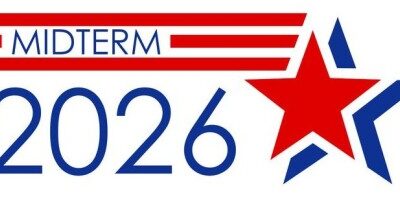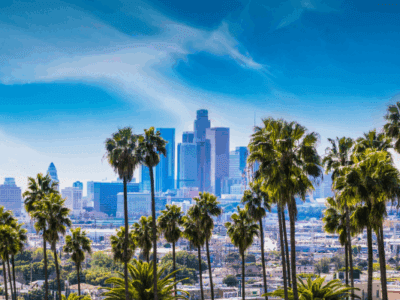Railtown — A Different LA Story
Railtown tells the story of how rail transit came to
Ethan Elkind‘s new book, Railtown, tells the story of LA’s rail system. It’s a fascinating account of LA’s move away from an almost religious attachment to the automobile. The LA story has some important implications for other cities.
It took several decades to get the current rail system built. There were many detours and delays along the way. Mass transit in LA has to confront not only a sprawling geography but a sprawling political situation, which meant that the route was set as much by neighborhood politics as planning needs. For instance, although Wilshire was a prime candidate for rail, because of its population density. But environmental icon Henry Waxman blocked the ideal route, seemingly in order to protect a neighborhood with which he had a class connection. Partly because of political delays and poor management, construction costs went way over budget.
As it turned out, heavy rail (that’s the kind with the famous “third rail”) only turned out to generate enough traffic on a few routes. But light rail (a/k/a trolley) worked well on some routes, and dedicated busways turned out to be a success in other places. Committing too heavily to the idea of a subway turned out to be a mistake. Another issue, which Ethan has written about elsewhere, was the failure to promote high density development along main routes.
This short summary leaves out the fascinating twists and turns of the narrative. It lacks the sex and violence to be another Chinatown, but it’s still quite a story.
P.S. For those in the area, Ethan will be speaking about the book topic with Martin Wachs at UC Berkeley on March 11th from 6 to 8pm. Link is here: http://www.iurd.berkeley.edu/transit-and-cities/ethan-elkind.shtml
Reader Comments
One Reply to “Railtown — A Different LA Story”
Comments are closed.






Dan, the fact is that we need another Rachel Carson to inspire us to save ourselves from the environmental destruction that Southern California freeways are causing today.
I still remember my grandmother taking Red Cars from San Pedro to downtown Los Angeles to work at Bullocks in the 50s before the Red Cars were shut down by SoCal Auto Club, auto and oil companies, etc. to maximize profits from the freeway system, and it almost broke her heart because she had to use horribly long bus rides to make the same commute.
I also remember the smog alerts from that era, and we are now creating a new atmospheric pollution disaster because of obsolete freeways that shall most certainly exceed the health threats that smog caused, destroying quality of life for future generations.
When shall we ever learn, is there another Rachel Carson today who can educate and motivate us to save ourselves once again?
In their Story of Civilization the Durants taught us that civilizations are destroyed by politicians and intellectuals who fail to meet the challenges of change. So I hope that today UC professors and scholars will unite to educate and motivate the public to save ourselves and our quality of life using the new worldwide communications technologies that give us advantages to save ourselves that we never had in Rachel Carson’s day.